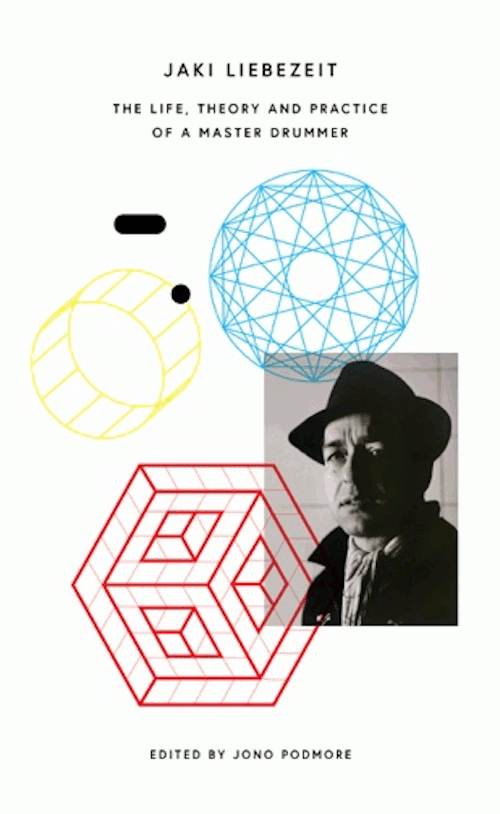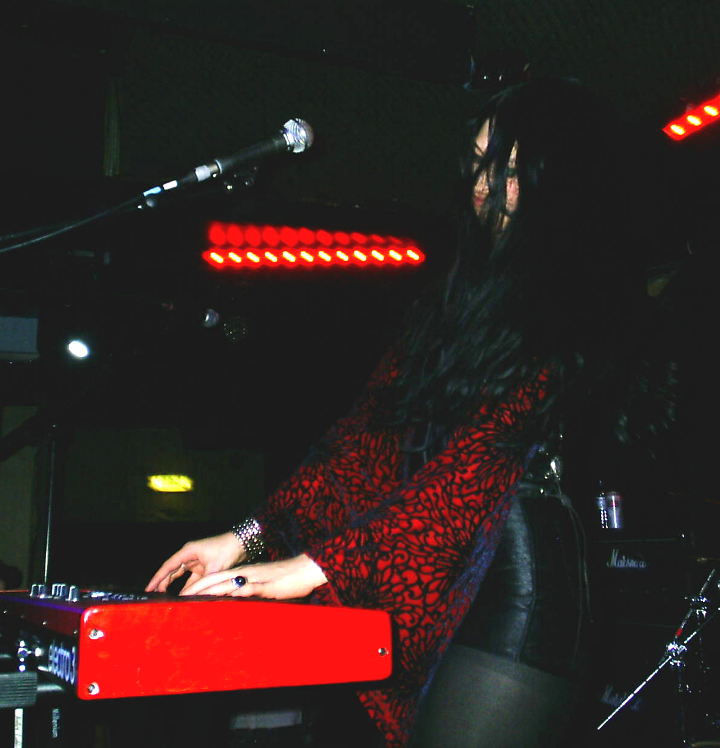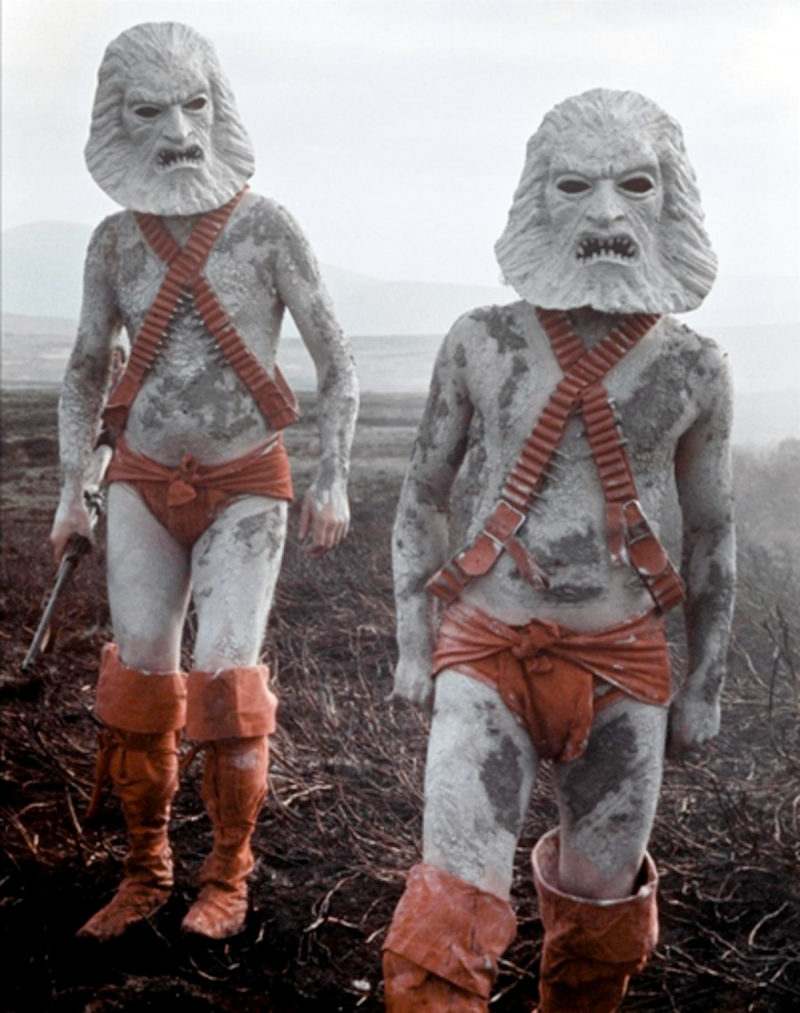Unbound
 Barely a biography, but… to say this book is a labour of love would be misleading; love is typically überflüssig. This is a labour of precision. And when I say it’s unsentimental, I don’t mean it’s lacking in affection; rather this is a sober, reasoned, and concise exegesis on Jaki Liebezeit‘s work. For good reason, the theme of überflüssig haunts much of it.
Barely a biography, but… to say this book is a labour of love would be misleading; love is typically überflüssig. This is a labour of precision. And when I say it’s unsentimental, I don’t mean it’s lacking in affection; rather this is a sober, reasoned, and concise exegesis on Jaki Liebezeit‘s work. For good reason, the theme of überflüssig haunts much of it.
focus on the Liebezeit formed by his work as a musician
I hadn’t read anything about this book before reading it, so I was partly expecting some sort of Jaki-centric version of last year’s
All Gates Open. And while there’s a degree of biographical detail, it’s at best cursory. We certainly learn enough about the master drummer to get an idea of who he was, and that he was charming and self-effacing, but there’s way more
focus on the Liebezeit formed by his work as a musician. I’d say now that if you’re looking for stories of scurillous drug deals and hotel sex, this probably isn’t the book for you. I’d also say you’re an idiot and I’ll have no quarter with you.
It’s a book that bears a structural similarity to a lot of academic writing — contemporaries of the subject writing essays on him, exegeses on method, epistemology, technique, materials, a comprehensive discography. What it “lacks” is the sort of disinterested / distinteresting effect of formalising an entire work. Which is to say that, while it’s not a sentimental paean, neither is an antiseptic cast of Liebezeit’s significance.
a prodigiously complex system from a set of simple axioms
Perhaps more than “academic” work, this is a
generous book. Having recently picked up the drums (I’m appalling) there’s enough of actual concrete systems for me to play with pretty quickly. The adage that follows journalism about Liebezeit is “play more repetitively”, and that’s certainly an aspect, but his drum thinking, laid out clearly and with a minimum of unduly obfuscatory music theory, builds
a prodigiously complex system from a set of simple axioms; the generosity comes from the clarity and simplicity of its exposition.
musical egalitarianism is closer to forms of anarchism
Where I say Liebezeit seems a charming and self-effacing character, it’s from his capacity to theorise music simply to pretty much any player (including melodic instruments). His
musical egalitarianism is closer to forms of anarchism — while he’s undoubtedly one of the drum greats, he actively forged ways to bring the exponentially less gifted musicians into his fold, to actively play with him.
Liebezeit obviously played with a raft of luminaries of various scenes, what perhaps wasn’t clear to me was how rich a field that was. Free jazz, kosmische, krautrock, ’80s synth experimentalism, electronica, punk… And the list of names he’s played with: obviously there’s the likes of Jah Wobble and a who’s who of German experimental music, but there was also The Edge, Phew and (get this) Ronnie Drew of The Dubliners, one of the finest Irish voices of the twentieth century.
Free jazz, kosmische, krautrock, ’80s synth experimentalism, electronica, punk…
It’d be tempting, given the apparent stringentness of Liebezeit, to imagine him a super-austere character. Perhaps one of my favourite bits I eked from this book: “[
Jono Podmore] remembers:[…] once when I was working with Jaki I programmed a triplet over his drums that were in 4. And he just said, ‘Switch that off.’ I said, ‘Well, I’m trying to get a bit of a feel of a different, maybe, polyrhythm thing.’ He said, ‘No, turn it off.’ I said, ‘Why, Jaki?’ He said, ‘It’s wrong!'”. Later on, the only drummer who’s explicitly mentioned in favourable terms by Liebezeit is
Bernard Purdie. Who puts triplets on fours.
makes principles like compound and additive rhythms way easier to understand
Which reflects on his musical system — it’s a fiendishly pluralist system, capable of exceptional monotony or inexplicable variety; as a teaching system it
makes principles like compound and additive rhythms way easier to understand than in Western theory. It should be said as well that Liebezeit is seemingly no dilettante of theory — there’s details on his absorption of Indian, Near East and African traditions.
This isn’t the book for the rockist side of Can’s fanbase. But it is a brilliantly accessible insight into rhythmic method and thinking, at turns intelligent without being foreboding, charming without being facetious, and exhaustive without being exhausting.
-Kev Nickells-
 Barely a biography, but… to say this book is a labour of love would be misleading; love is typically überflüssig. This is a labour of precision. And when I say it’s unsentimental, I don’t mean it’s lacking in affection; rather this is a sober, reasoned, and concise exegesis on Jaki Liebezeit‘s work. For good reason, the theme of überflüssig haunts much of it.
Barely a biography, but… to say this book is a labour of love would be misleading; love is typically überflüssig. This is a labour of precision. And when I say it’s unsentimental, I don’t mean it’s lacking in affection; rather this is a sober, reasoned, and concise exegesis on Jaki Liebezeit‘s work. For good reason, the theme of überflüssig haunts much of it.


